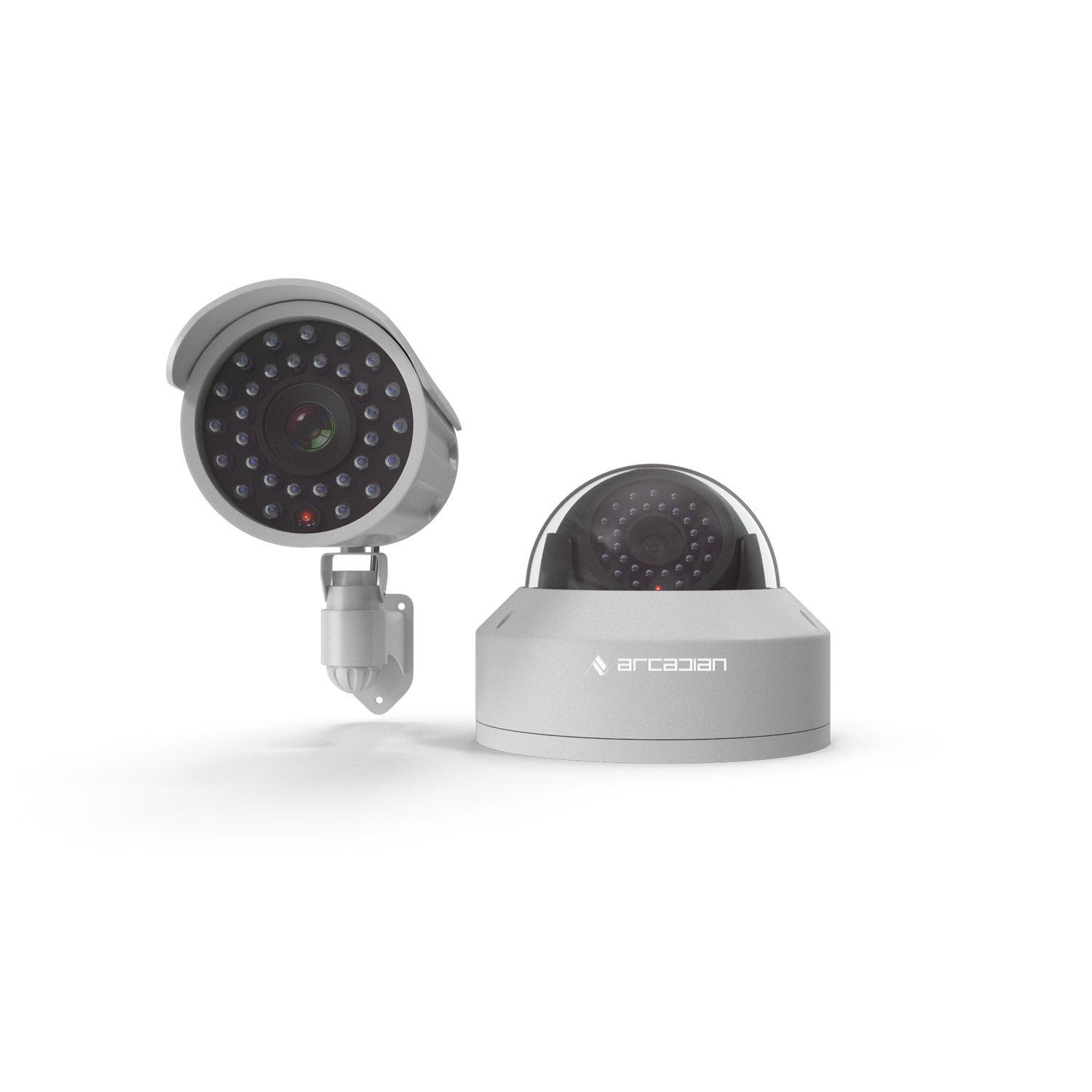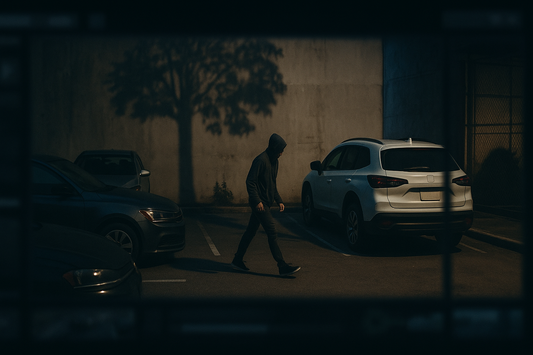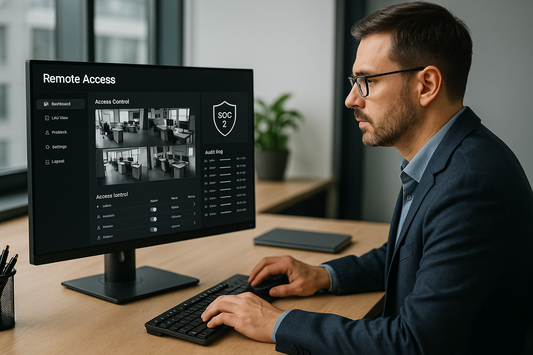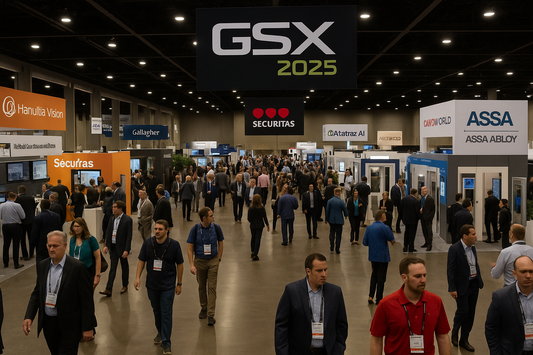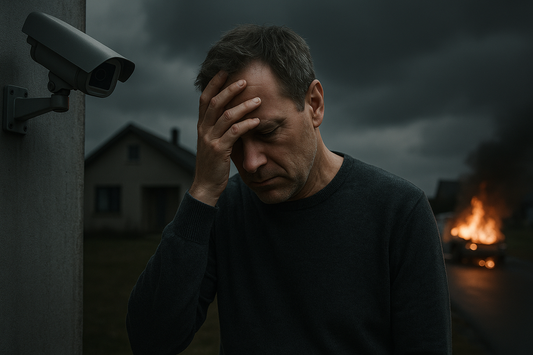Why We Resist Security Until It’s Too Late
We dislike insurance until a fire burns us. We dislike rules until chaos erupts. And we dislike security—until disaster makes it non-negotiable. Here’s why delaying protection is the costliest mistake for families and businesses.

Introduction
We dislike medicine until we’re sick.
We dislike insurance until disaster strikes.
We dislike rules until we witness the chaos without them.
And we dislike security—until it’s too late.
ArcadianAI was born out of this universal contradiction: people and businesses see security as a burden. Alarms feel disruptive, cameras feel invasive, contracts feel expensive. Security is treated as a “necessary evil” rather than a right or an investment.
But denial doesn’t erase reality.
In 2024, U.S. businesses lost over $121 billion to retail shrink (National Retail Federation). Families in high-crime areas paid 30% higher insurance premiums than safer neighborhoods (Insurance Information Institute). According to Forbes, cyber-physical breaches and theft are now among the top three causes of small business bankruptcies across North America.
Competitors like Verkada, Genetec, Milestone, Eagle Eye Networks, and Rhombus market surveillance as convenience. But they avoid a deeper conversation: the emotional weight of insecurity. The truth is that resisting security isn’t rational—it’s emotional. And it costs us more than we can afford.
ArcadianAI’s mission, through our AI assistant Ranger, is to break this cycle. By reframing security from burden to peace of mind, we remove friction and deliver what every family and business truly wants: freedom to grow without fear.
Quick Summary / Key Takeaways
-
Resistance to security is emotional, not rational.
-
Businesses lose $121B+ annually to theft and shrink.
-
Families in unsafe areas pay 30% more for insurance.
-
Delaying security multiplies financial and emotional losses.
-
ArcadianAI + Ranger reduce false alarms, liability, and stress.
Background & Relevance
Why This Matters Now
Security has become one of the fastest-rising expenses for both businesses and families. Insurance providers report that property crime is a leading driver of premium increases in 2024–2025. Meanwhile, labor shortages in policing and private security have left many communities exposed.
Key Stats (2024–2025):
-
FBI: Commercial burglary incidents rose 15% YoY.
-
NRF: Organized Retail Crime (ORC) costs U.S. retailers $720,000 per $1B in sales.
-
Canadian Federation of Independent Business: 47% of small retailers reported at least one break-in or major theft in 2024.
-
Mexico: Retail chains lost $2.1B to theft and vandalism in 2024 (AMVO).
Despite these facts, most businesses remain under-secured. Families postpone upgrades to locks, cameras, or alarms, believing danger is distant. This paradox—knowing risk is rising, yet resisting action—creates catastrophic vulnerabilities.
The Emotional Paradox of Security
Behavioral science tells us that humans discount risks until they personally experience them. Daniel Kahneman’s Thinking, Fast and Slow explains how loss aversion and present bias cause people to overvalue today’s savings over tomorrow’s losses.
That’s why businesses choose to “wait another year” before upgrading their surveillance. That’s why homeowners postpone replacing locks or installing cameras. And that’s why insurers keep raising premiums—because denial has become policy.
But the data shows a harsh truth:
Resistance doesn’t prevent disasters. It multiplies them.
Core Topic Exploration
1. Why We Dislike Security
-
Cost Aversion — Security is seen as an expense, not ROI.
-
Invasion Perception — Cameras and alarms feel like mistrust.
-
Denial Psychology — “It won’t happen to me” mindset.
-
Disruption Myth — Fear of operational friction from alarms or audits.
-
The “Normalcy” Trap — Habituation blinds businesses to escalating risks.
2. The True Cost of Delay
-
Retail Example: A mid-sized chain lost $2.5M in 3 years from theft before investing in AI surveillance.
-
Hospitality Example: A hotel chain faced $1.2M in lawsuits after a parking lot assault due to poor lighting and cameras.
-
Family Example: Home invasions cost victims an average of $8,000 in losses plus psychological trauma lasting years (DOJ, 2024).
3. The Business Disaster Cycle
-
Underestimate risk.
-
Delay action due to cost.
-
Experience disaster.
-
Face insurance hikes, lawsuits, brand collapse.
-
Spend 3–10x more than proactive protection.
Case Study: A Toronto convenience chain closed 4 stores permanently in 2024 after repeated armed robberies—security delays destroyed community trust.
4. The Psychology of Insecurity
-
Optimism Bias: We believe bad things happen to others, not us.
-
Availability Heuristic: Unless we personally witness a crime, we downplay its risk.
-
Denial Bias: We minimize threats to avoid uncomfortable emotions.
-
Surveillance Fatigue: Too many false alarms erode trust in systems—why Ranger focuses on false alarm reduction up to 65%.
5. How ArcadianAI Breaks the Cycle
-
Camera-agnostic platform: No vendor lock-in like Verkada or Ring.
-
Ranger AI assistant: Filters noise, delivers real threats.
-
Insurance alignment: Reduces liability exposure and claims.
-
Operational ROI: Converts surveillance from expense → risk reduction asset.
Comparisons & Use Cases
Table: Delaying Security vs ArcadianAI Investment
| Factor | Delaying Security | Investing in ArcadianAI + Ranger |
|---|---|---|
| Financial Impact | $0 upfront → $100K+ in losses later | Predictable subscription, liability savings |
| Insurance Premiums | 20–40% hikes after incident | Discounts, favorable underwriting |
| Employee Safety | High risk, lawsuits possible | Documented AI alerts reduce liability |
| Retail Shrink | 2–4% of sales lost | Up to 40% reduction |
| Peace of Mind | Anxiety, stress, denial | Confidence, focus on growth |
Use Cases:
-
Retail Chains → Cutting ORC losses by 40%.
-
Logistics & Warehouses → Detecting cargo theft and vandalism.
-
Healthcare Facilities → Protecting staff from patient aggression.
-
Schools → AI-assisted situational awareness.
-
Residential Communities → Lower insurance, higher resale value.
Common Questions (FAQ)
Why do people resist security?
Because security feels like a cost and a disruption—until disaster proves it’s an investment.
What’s the risk of delaying?
Businesses face losses 5–10x greater than the cost of early protection. Families risk trauma and insurance penalties.
Do cameras actually prevent crime?
Not always, but AI-driven systems like Ranger drastically reduce blind spots and response delays.
How is ArcadianAI different from Verkada or Genetec?
We’re camera-agnostic, cloud-native, and AI-first—no lock-in, no heavy infrastructure, no hidden contracts.
What industries should act now?
Retail, logistics, healthcare, education, real estate, and any sector facing liability, theft, or safety risks.
Conclusion & CTA
We dislike security because it forces us to confront danger. But danger doesn’t disappear just because we resist it.
The costs are clear: billions lost to theft, families left vulnerable, businesses closed forever. Resistance is emotional—but survival is rational.
ArcadianAI reframes security from burden to peace of mind. With Ranger, cameras stop being invasive—they become protective. Alerts stop being disruptive—they become precise. Security stops being a cost—it becomes freedom to grow.
Security Glossary (2025 Edition)
AI Alerts — Automated notifications from AI when anomalies are detected.
Availability Heuristic — Cognitive bias where people judge risk based on recent memory.
Burglary Loss Rate — Average cost of theft incidents on businesses.
Denial Bias — Psychological tendency to underestimate risks to avoid discomfort.
False Alarm Rate — Share of alerts that turn out to be irrelevant.
Loss Prevention (LP) — Retail strategy to reduce theft and shrink.
NVR (Network Video Recorder) — On-premises storage system for surveillance video.
ORC (Organized Retail Crime) — Coordinated theft by professional groups targeting retailers.
Ranger (ArcadianAI) — AI assistant that filters noise and highlights true threats.
Retail Shrink — Loss from theft, fraud, or errors, often expressed as % of sales.
Surveillance Fatigue — Guard burnout from false or excessive alerts.
VSaaS (Video Surveillance as a Service) — Cloud-based surveillance delivery model.

Security is like insurance—until you need it, you don’t think about it.
But when something goes wrong? Break-ins, theft, liability claims—suddenly, it’s all you think about.
ArcadianAI upgrades your security to the AI era—no new hardware, no sky-high costs, just smart protection that works.
→ Stop security incidents before they happen
→ Cut security costs without cutting corners
→ Run your business without the worry
Because the best security isn’t reactive—it’s proactive.
